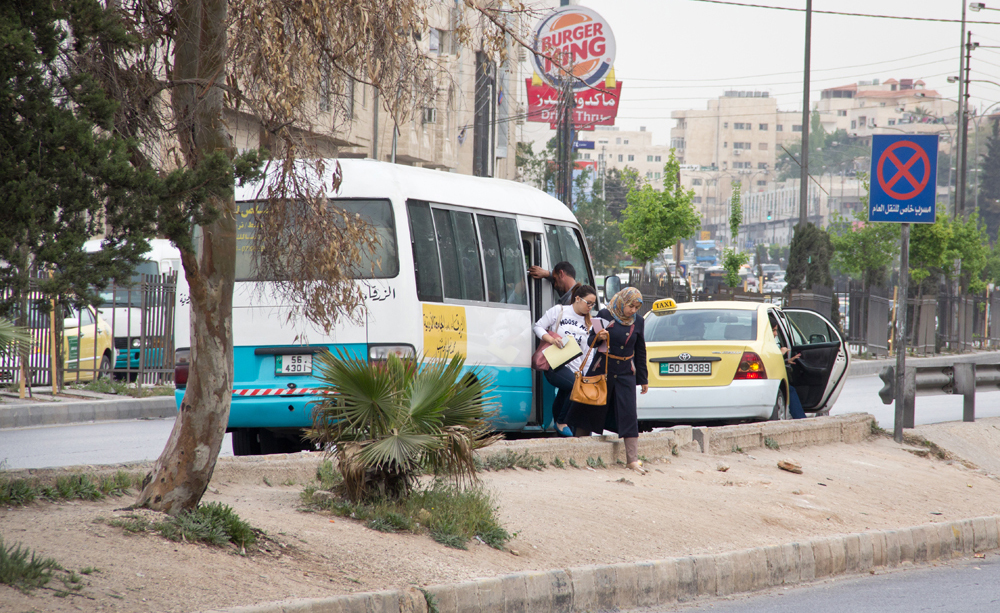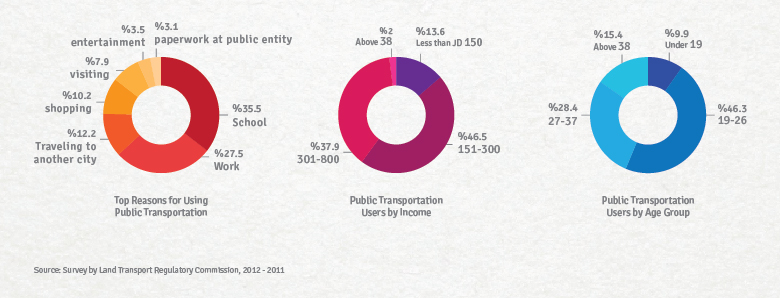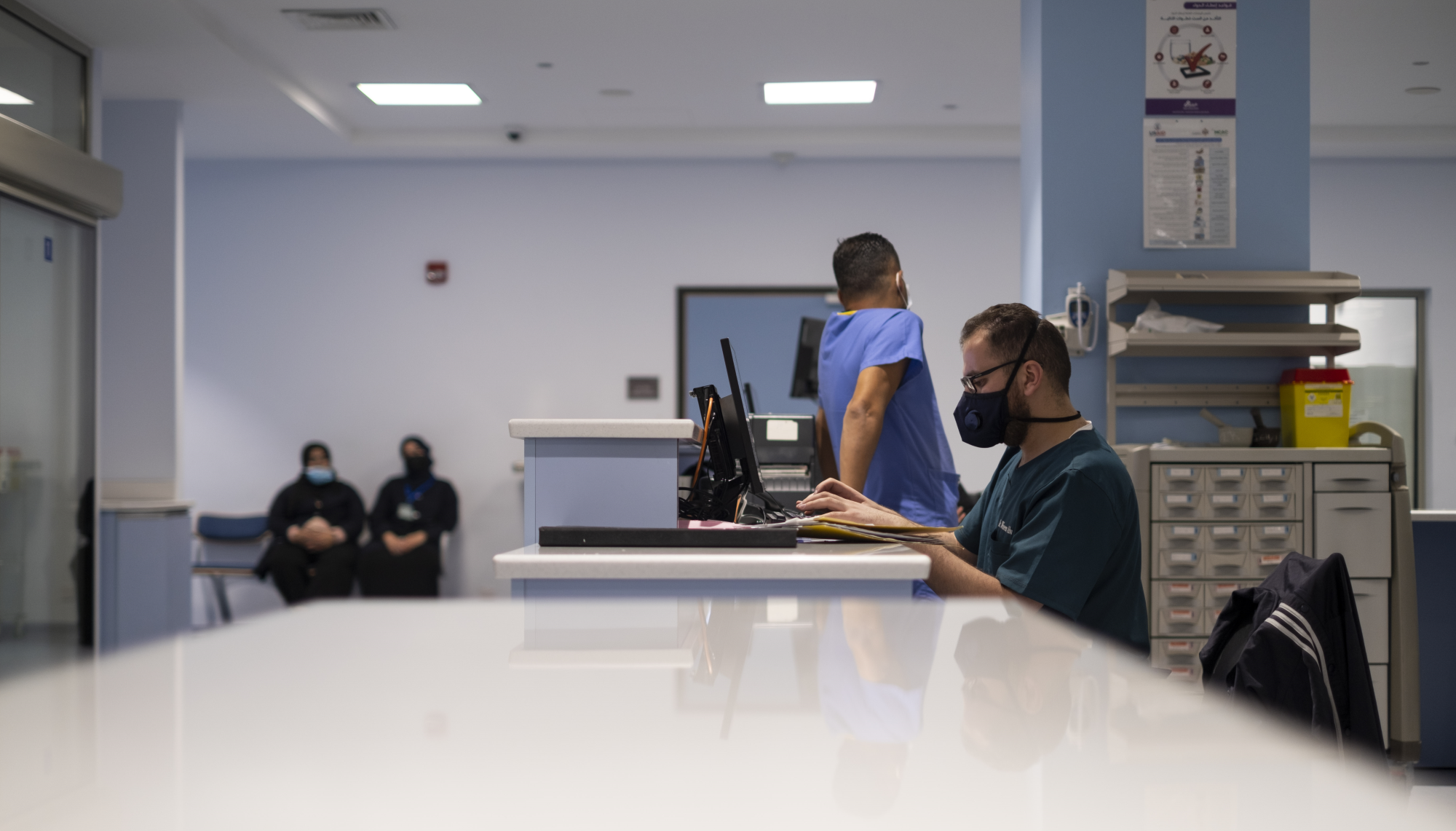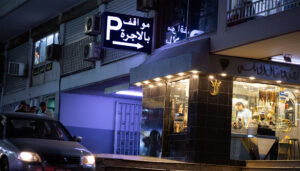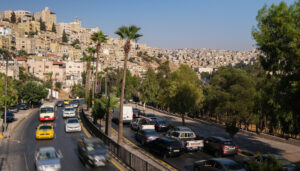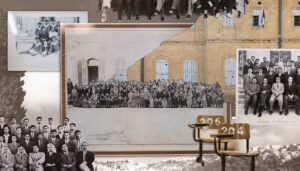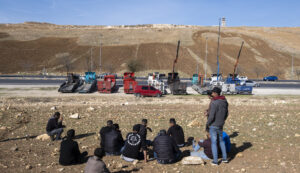This article and two others in a package of articles about the difficulties transportation can pose for Arab university students were a cooperative effort between 7iber, and Al-Fanar Media. The other articles are “In Damascus, a New Student Craze: Bicycles” and “A Hidden Barrier to Arab Students’ Education“.
By Dana Gibreel
University student Khadija Gowda’s was worried about her final exams but just as worried that she wouldn’t make it to her exam on time.
The distance from Khadija’s house in Tabarbour to the University of Jordon is about 11 kilometers, Khadijah has estimated. But she has to leave three hours to get to the exam by public minibuses. Nobody knows when the buses will arrive at their destination. Sometimes it takes a bus 10 minutes or could take to two hours or more.
The poor public transportation prevents many public university students from taking full advantage of their education. They have long waits before boarding their buses and miss many of their morning classes and, occasionally, exams. In contrast, some private universities provide buses for students but charge them high prices. Some students use their own cars but then add to the heavy traffic.
An unwieldy system of running the public buses, which carves bus lines up among individual operators with little incentive to improve customer service, appears to be at the heart of the problem, observers say. The reality is that Jordan’s poor transportation is dragging down the education of the kingdom’s youth.
A survey of passenger satisfaction conducted by the government’s Land Transportation Authority in 2011-2012 found that 35 percent of those surveyed used the system for educational purposes.
A 2014 transportation study conducted by the World Bank found that 80 percent of Jordanian students need to use public transportation. Thirty-nine percent of the students need to use two buses or more to reach their destination. Public transportation is clearly a barrier to education, especially girls: 30 percent of families refuse to let their children use public transportation, particularly when they are girls, according to a report by Al-Ghad newspaper on the World Bank study.
Farah Abdel Salam, a student in the financial and banking sciences at Tafila Technical University, chose housing close to the university so that she could walk there in five minutes. But on the weekend she suffers when she goes to visit her family. She reaches the bus station at 5:30 on Sunday morning. Like other students, she prefers to take one of the big air-conditioned buses with comfortable seats and room for bags. Given it is a two-and-a-half hour trip, she doesn’t want to be crammed with five or six people into a taxi or even more people in a mini bus weaving in and out of traffic. But she has to wait for the driver of the big bus to decide when he wants to start his journey. And she has no idea when she is going to arrive.
Student safety can be endangered on the buses. In April, an exploding bus engine gave a student from the Hashemite University first degree burns. Al-Motakamela Company for Transportation, which is responsible for transporting students from the Hashemite University to Amman, incurred 18,000 dinar fines ($25,330) in 2014 because the company did not carry out the required maintenance and license the buses properly, according to the Audit Bureau report of 2014.
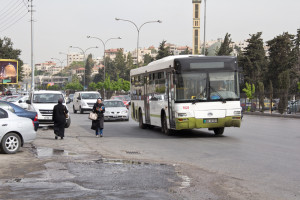 Behind the steering wheel, Saed Mahmoud, driver who works on bus line (Abo Alya – Tabrbour – Al-Jamaa), said that the five buses working on this line have regular schedules and any delay is ascribed to the traffic and the roads which can affect arrival and departure times.
Behind the steering wheel, Saed Mahmoud, driver who works on bus line (Abo Alya – Tabrbour – Al-Jamaa), said that the five buses working on this line have regular schedules and any delay is ascribed to the traffic and the roads which can affect arrival and departure times.
The journey of the first bus starts on this line from 6:00 am until 6:00 pm with an average of 12 driving hours for each driver. He says he eats only one meal per day. “I don’t even stop to eat. I eat while driving, I am used to this, but sometimes I feel tired and I wish there was someone to help me.”
The regulations that govern public transportation licenses oblige the operator to follow labor laws and not to increase drivers’ working hours above 10 hours daily, with breaks every four hours.
7iber accompanied Saed for a couple of hours during his work, as he stopped tens of times to drop off passengers and pick up others from several places without sticking to the bus stops. He opens his mini bus door to drop off a passenger on Al-Madinah Al-Riyadhiya street advising him “to beware of cars.”
Justifying this act, Saed says “We stop wherever a passenger wants, this is easier and better for him/her. However, this increases the duration of the journey. He added that he gets many traffic penalties for many reasons, most important of which is going over the permitted passenger load, “which is always for the sake of the passengers”.
Who monitors?
Companies operating buses to/from universities are subject to the supervision of the Land Transportation Authority, according to the basis and requirements of granting licenses and permissions to operate public transportation lines issued in 2009. The Authority has full control to give penalties starting from a warning to withdrawing the license from lawbreakers.
However these basis and requirements are not enforced effectively. Marwan Al-Hmoud, Chairman of the Land Transportation Authority, ascribes this to the large number bus lines’ operators, which are difficult to supervise.
In his intervention during an event hosted by “Ma3an Nasel” Campaign, Al-Hmoud said that there are 20,000 operators across the kingdom and that they cannot handle all this number efficiently.
Hashemite University and Al-Motakamela Company
The 30,000 students studying at Hashemite University, which was established in 1995 and is 20 kilometers northeast of Amman, have a particularly hard time with transportation, according to evidence provided by multiple organizations and people, including the director general of Al-Motakamela Company for Transportation, which transports students between Hashemite University and Amman.
The university doesn’t have student housing or dorms. As a result, 8,000 students commute from Amman to the campus, according to data provided by Al-Motakamela Company.
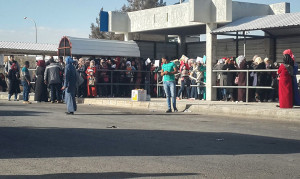 Qosay Al-Khawldah, the head of the Students’ Union, says there aren’t enough buses and the buses aren’t well maintained. The Land Transportation Authority, however, says the problem is the remote location of the university, and its policy of accepting more students than the transportation system can handle. “The university should have accepted only 4,000 students last year, but it accepted 10,000 students without consulting us,” says Abla Weshah, the authority’s spokesperson.
Qosay Al-Khawldah, the head of the Students’ Union, says there aren’t enough buses and the buses aren’t well maintained. The Land Transportation Authority, however, says the problem is the remote location of the university, and its policy of accepting more students than the transportation system can handle. “The university should have accepted only 4,000 students last year, but it accepted 10,000 students without consulting us,” says Abla Weshah, the authority’s spokesperson.
Al-Khawldah says that students have organized several protests, such as boycotting Al-Motakamela buses and walking from the university to Amman. As a result, the Transportation Committee, the Ministry of Transportation, the university administration, and Al-Motakamela all met together. Al-Motakamela agreed to rent buses from other companies as a temporary solution.
Moayed Abo Farda, director general of Al-Motakamela Company, did not deny that the delay of the company in securing new buses for the Hashemite line is due to the delay of the governmental authorities in paying their dues to the company. The government is supposed to pay 50 percent of the students’ transportation fees for some public universities.
The government supports students without assessing the quality of services
In 2010, the government adopted a project to support students’ transportation fees, according to which the government incurs 50 % of the students’ transportation fees in some governmental universities, such as the Hashemite University. The governmental support reached JOD 3.5 millions in 2014, of which 2 million were allocated to Al-Motakamela. About 51 % of the company is owned by the government, 10 % belongs to Amman Secretariat, and 39 % is owned by the private sector.
The problem lies in the governmental support mechanism. There is no relationship between the governmental support and the provision of better services, says Hazem Zureiqat, expert in the transportation sector and a founding member of “Ma3an Nasel” (together we arrive at our destination) Campaign. Zureiqat says that the support provision mechanism must be reflected on the terms and conditions of the operation contracts, so that the main aim of the operator would be offering a better service. He adds that there are many challenges in the operational environment, most important of which is the huge number of individual ownerships of public transportation lines.
Qosay Al-Khawldah, the head of Students’ Union, is not optimistic about the decisions currently taken to improve students’ transportation. The buses that were provided were rented from a tourist company, he says, which will eventually want its buses back. “How will they solve this problem on the long term?” he says. He adds that the problem is currently not obvious because students enrolled in the summer semester are less than those in other semesters. “By the first semester, [October] we will know whether the problem was finally solved or we are back to square one.”
